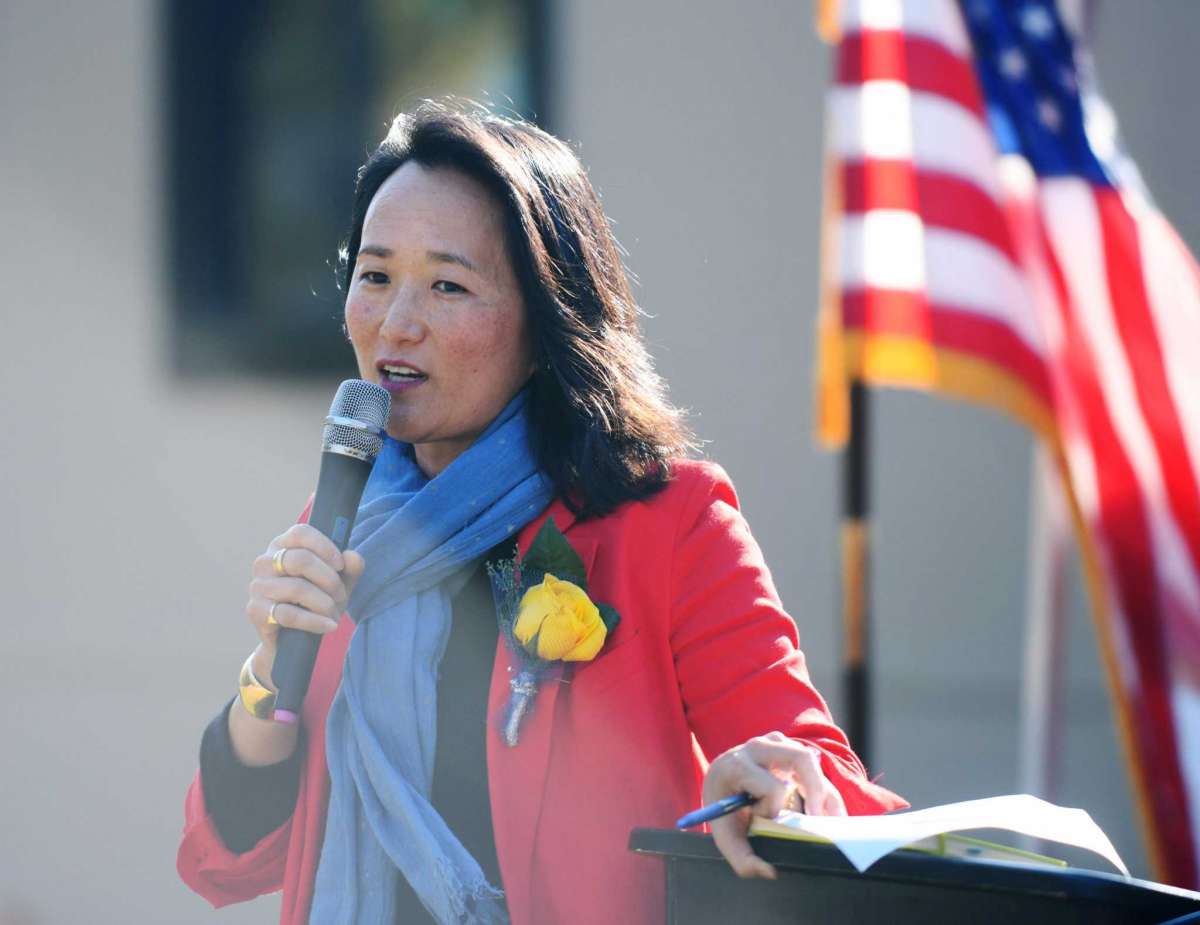
State Rep. Kimberly FiorelloJan. 21, 2022
Happy New Year! I hope you are starting 2022 rested and ready for what the new year has in store. For those of us who were in the fight last year to protect private property rights and maintain local control of zoning, I want to share with you that the housing activists in Hartford known as DesegregateCT are back and already pushing their agenda to enact new state laws that would force Connecticut’s cities and towns to increase housing density.
The state Legislature will go into session Feb. 9 and adjourn May 4. This is the window of time during which we must re-group and re-focus our energies to defend against DesegregateCT’s latest attempt to (1) automatically rubberstamp building permits in neighborhoods in the vicinity of train stations, (2) disallow one-acre single-family zoning, wherever they can, in order to mandate 1/8-acre single-family zoning instead, and (3) push for regional zoning commissions that would effectively eliminate local planning and zoning bodies.
Although DesegregateCT purports to be a coalition of neighbors and nonprofits in Connecticut, it is an arm of the Regional Planning Association Inc, a New York-based advocacy group for builders and architects. RPA currently has an ad out seeking to hire a director for DesegregateCT, who will be a full-time staff member of RPA with benefits, offering an annual salary up to $80,000. And RPA is hiring a Local Organizer at $20-22 per hour to report directly to the director. Indeed, DesegregateCT is professionally organized, well-funded, and on the move for their benefactors. All the stories, all the time Unlock Stamford Advocate for 99¢ Subscribe
By contrast, what managed to prevent enactment of some of the most egregious state mandates on local zoning pushed by DesegregateCT in the last legislative session was the spontaneous, zero-cost, cooperation of hundreds of regular folks across our state. So many of us attended rallies, wrote letters to the editor, emailed legislators and the governor, and testified in public hearings, including one that lasted 24 hours.
Rather than only “play defense” and defend the status quo, I believe we should go on offense to demand a substantial modification or repeal of the “Affordable Housing Land Use Appeals Act,” known as 8-30g. This act provides that in towns where less than 10 percent of the housing stock is “affordable” as defined in the statute developers can in effect ignore local zoning regulations governing height, lot coverage, setbacks, traffic congestion, impact on neighboring property values and more, as long as 30 percent of the developer’s units are government subsidized or deed-restricted.
One example of the effect 8-30g can have on a community is the current building proposal at 5 Brookridge Drive in Greenwich, where a single-family home would be replaced by an 86-unit apartment building with 183 parking spaces standing approximately 55 feet high of which 26 units would be designated as “affordable.” The proposal for a 192-unit development on Church Street in Greenwich is also an 8-30g application.
In the 30 years since its enactment in 1990, only 31 out of the 169 municipalities in Connecticut have met the 10 percent threshold of 8-30g and complying with it was so problematic that in 2017 the legislature had to allow moratoriums on 8-30g applications for some towns. So clearly the law is unworkable in practice in many communities.
The baseline for the 10 percent affordable housing ratio is the federal decennial census, such that calculations of how many housing units each town must have resets every 10 years. One substantial modification to 8-30g would be fix the baseline to 1990, when the law originally passed. A key failing of 8-30g is that with each major housing complex that’s built, the denominator of overall housing stock increases more rapidly than the numerator of “affordable” housing. A second substantial modification would be to change the law’s definition of “affordable” to count housing in each community that is naturally occurring affordable housing (NOAHs) that are not subsidized or deed-restricted.https://fe0848678226a63802e6070c54ae9e05.safeframe.googlesyndication.com/safeframe/1-0-38/html/container.html
Our government works for us; if lawmakers have passed a flawed bill, the voters can demand it be changed or repealed. Making life in Connecticut affordable has a lot more to do with attracting private sector jobs, expanding educational choice, and providing tax relief than mandating a housing ratio that is almost impossible for towns to reach.
And while we applaud the visionary efforts and risk-taking of property developers, a special-interest state law that allows developers to ignore local concerns while running roughshod over the rights of smaller, individual property owners is unfair to the population at large.
Many of our towns and cities have taken measures over the years to promote affordable housing, such as the creation of inclusionary housing zones and affording housing trust funds. Despite these efforts, unfortunate statements were made last year by certain proponents of more state mandates on local zoning, including allegations of racism in zoning decisions and statements maligning local zoning commissioners as ignorant and untrained. I hope the discussion about zoning this year will be different and based on policy differences instead of personal attacks.
Our civil society is strongest when we have regular citizens who are actively involved and assertive of their rights. This year as in the past lobbyists and special interest groups will work to infringe on your property rights. Only by speaking out as we did last year can ordinary citizens ensure fairness and a voice in local planning decisions.
I look forward to working with you all again in this next session to advance good public policy and to stop bad ideas. Please subscribe to my e-blast at www.repfiorello.com so I can share the latest from the Legislature with you.
State Rep. Kimberly Fiorello’s 149th district includes parts of Greenwich and Stamford.
